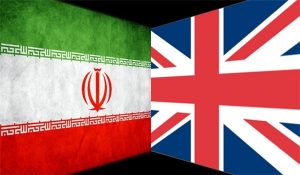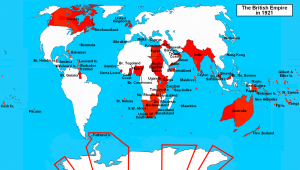The British Labour Party Uses Humanitarian Assistance as a Means of International Diplomacy In the Twenty-First Century

Introduction
In 1945 the Labour Government, led by Clement Attlee, inherited a huge and complex Empire. It appeared the British Empire had yet again emerged intact from a fundamental challenge, but in real terms, this was not the case. The global war’s impact on Britain was a massive debt that was mainly owed to the United States. Additionally, estimates have shown that 10% of Britain’s pre-war wealth or no less than one-quarter of disinvestment had been lost. Most importantly, Britain was able to pay for only a fraction of the imports she needed for current survival and for the reconstruction of her economic well-being. “Through lend-lease and her ability to run up enormous debt to members of the sterling area it had been possible during the war to divert a large proportion of her former export industries to war production, so that as the end of 1944 her export stood at only about one-third of their pre-war volume.”1
As for import needs, they remained the same as in 1938, in addition to the fact that terms of trade had also moved against Britain; “invisible earning have fallen through the loss of one- Quarter of the merchant- marine, and the liquidation of over £1 billion in foreign investments. Britain’s external liabilities were nearing £3.5 by the middle of 1945- a seven-fold increase – yet her reserves totaled less than £500 million.”2
According to calculations, over the next three years, before Britain could pay its way internationally, debt of at least another £1.25 billion would be incurred. Furthermore, given the many changes in the country’s economic predicament, “it was expected that in order to achieve long-term solvency the volume of British export would have to be at least 50 percent higher than before the war. This figure was later revised to 75 percent. Yet, in June 1945, no less than 45 percent of the nation’s employable manpower was still directly or indirectly directed to the war effort. Conversation to the needs of peace had barely begun.”3
As a result, “the material fruits of victory were not much in evidence.”4 If not among the public, defence, foreign and colonial policy received considerable attention in the Labour Party. This was a result of the emergence of two new superpowers, the United States, with its possession of atomic weapons, and the Soviet Union, which would clearly have such weapons soon. Moreover, the Labour leader, Clement Attlee, had already been, even before the Second World War, speaking of Labour’s commitment to the abandonment of imperialism in the colonies. This was partly because of the Labour’s colonial doctrine, and, therefore, it is essential to bring this to our attention. Although the economic pressure on the Labour Government were a principle cause of its post-war decolonisation policies, ideological factors played a leading role in influencing Labour leaders in formulating their policies.



